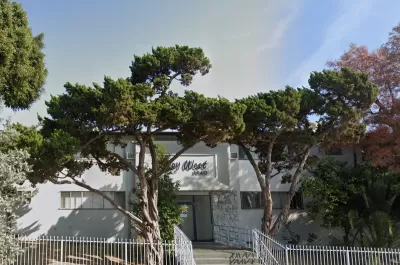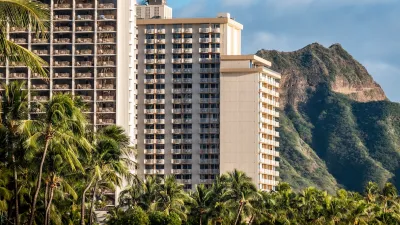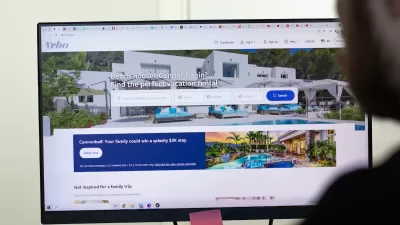Hundreds of rent-controlled units are being illegally rented out as short-term rentals, pushing out long-term renters and exacerbating the city’s housing crisis.

In an article for ProPublica, Robin Urevich and Haru Coryne reveal that many of Los Angeles’ short-term rental units could be rent-controlled apartments rented out in violation of a 2018 law.
“In some cases, entire apartment buildings with more than 30 units are listed as boutique hotels on sites like Hotels.com and Booking.com,” according to a ProPublica and Capital & Main investigation. “By analyzing city databases and combing through online listings, the news organizations found 63 rent-controlled buildings where a tourist could book a room this spring. The number is likely far higher because many vacation rental websites like Airbnb don’t list exact addresses,” the article adds.
Meanwhile, the city’s enforcement system is “riddled with inefficiencies and shortcomings,” making it difficult to preserve affordable housing in a city with high levels of tourism. While the planning department uses an automated system to detect listings in potential violation of the law, the department admits it doesn’t have the capacity to follow up on most cases.
According to the article, “The City Council is expected to vote on recommendations to tighten the home-sharing ordinance later this year. The ideas include allowing individuals to sue violators, creating a home-sharing enforcement team made up of staff from different city departments and offering residents rewards for reporting neighbors who violate the ordinance.”
FULL STORY: In Los Angeles, Your Chic Vacation Rental May Be a Rent-Controlled Apartment

Planetizen Federal Action Tracker
A weekly monitor of how Trump’s orders and actions are impacting planners and planning in America.

Congressman Proposes Bill to Rename DC Metro “Trump Train”
The Make Autorail Great Again Act would withhold federal funding to the system until the Washington Metropolitan Area Transit Authority (WMATA), rebrands as the Washington Metropolitan Authority for Greater Access (WMAGA).

The Simple Legislative Tool Transforming Vacant Downtowns
In California, Michigan and Georgia, an easy win is bringing dollars — and delight — back to city centers.

DC Backpedals on Bike Lane Protection, Swaps Barriers for Paint
Citing aesthetic concerns, the city is removing the concrete barriers and flexposts that once separated Arizona Avenue cyclists from motor vehicles.

In These Cities, Most New Housing is Under 441 Square Feet
With loosened restrictions on “micro-housing,” tiny units now make up as much as 66% of newly constructed housing.

Albuquerque’s Microtransit: A Planner’s Answer to Food Access Gaps
New microtransit vans in Albuquerque aim to close food access gaps by linking low-income areas to grocery stores, cutting travel times by 30 percent and offering planners a scalable model for equity-focused transit.
Urban Design for Planners 1: Software Tools
This six-course series explores essential urban design concepts using open source software and equips planners with the tools they need to participate fully in the urban design process.
Planning for Universal Design
Learn the tools for implementing Universal Design in planning regulations.
Smith Gee Studio
City of Charlotte
City of Camden Redevelopment Agency
City of Astoria
Transportation Research & Education Center (TREC) at Portland State University
US High Speed Rail Association
City of Camden Redevelopment Agency
Municipality of Princeton (NJ)





























